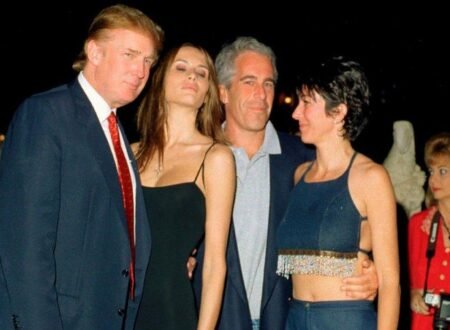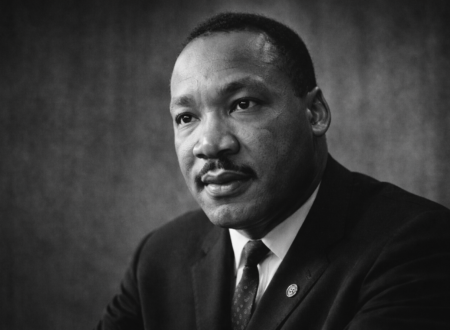A Life Lived for Others: Tribute to the Late Pope Francis
On April 21, 2025, the world learned that Pope Francis, born Jorge Mario Bergoglio, had died at the age of 88. His passing sent ripples of grief across continents. Over twelve years as the Bishop of Rome, he transcended religious boundaries with his warmth, his unwavering solidarity with the poor, and his fearless appeals for justice and compassion. Though he led more than a billion Catholics, his influence went far beyond the walls of the Church, offering enduring lessons and inspiration to all of humanity. In what follows, we trace his journey from humble beginnings to his transformative papacy, reflect on his greatest contributions, and consider the wellspring of faith and conviction that sustained him.
From Buenos Aires to the World Stage: Early Life and Formation
Jorge Mario Bergoglio’s story began not in the grandeur of the Vatican but in the humble neighborhood of Flores, Buenos Aires, where he was born on December 17, 1936. The son of Italian immigrants, Mario José Bergoglio, a railway worker, and Regina María Sívori, he grew up in a modest, hard-working household with four siblings. After finishing a technical secondary school, he briefly worked as a chemical technician, a background that honed his analytical mind and disciplined observation.
At 21, in 1957, he entered the Jesuit novitiate, embarking on a demanding journey of study in the humanities, philosophy, and theology. He even completed a diploma in chemistry before fully committing to the seminary, a testament to his wide-ranging intellect. His path to ordination was interrupted by serious illness and the loss of part of one lung, yet in 1969 he was ordained a priest. He then spent years teaching literature, psychology, and theology at Jesuit colleges in Argentina, years that deepened his understanding of young minds, social currents, and the pastoral care of souls.
Rising Through the Ranks in a Changing Argentina
Bergoglio’s blend of intellectual acumen, spiritual depth, and administrative talent quickly became apparent. In 1973, at just 36, he was named Provincial Superior of the Jesuits in Argentina, a challenging post during the nation’s “Dirty War.” Though controversies have swirled around actions taken in that fraught era, many who knew him speak of his discreet efforts to shield vulnerable individuals and his steadfast loyalty to the Church amid intense internal divisions. These trials forged his resilience, sharpened his political awareness, and deepened his compassion for those under threat.
After his term as Provincial, he studied in Germany and returned to serve in various pastoral capacities, including as a spiritual director. In 1992, he was appointed Auxiliary Bishop of Buenos Aires, and by 1998 he became Archbishop. In that role, he lived simply, cooking his own meals, residing in a modest apartment rather than the episcopal palace, and riding the city bus to work. He dedicated himself to the poor, regularly visiting slums and decrying social injustice. His style of evangelization, personal witness through humble service, reflected the Jesuit ideal of finding God in every person, especially the most marginalized.
In 2001, Pope John Paul II elevated him to the College of Cardinals. Even then, he refused special treatment, traveling by bus to Vatican meetings and maintaining his austere lifestyle. He took part in the 2005 conclave that elected Pope Benedict XVI, and was already regarded by many as a leading contender.
The Unexpected Call: A Pope Named Francis
When Pope Benedict XVI resigned in February 2013, it set the stage for a remarkable conclave. On March 13, after five ballots, white smoke rose from the Sistine Chapel, and the name Jorge Mario Bergoglio was announced. The new Pope chose the name Francis, signaling his admiration for St. Francis of Assisi and his commitment to poverty, humility, peace, and care for creation. He surprised the faithful by replacing the traditional red papal shoes with his worn black ones and humbly asked for their prayers, immediately conveying simplicity and solidarity.
A Papacy of Mercy, Encounter, and Reform
From the outset, Pope Francis emphasized a “field hospital” Church, one committed to healing and compassion. He devoted the Extraordinary Jubilee Year of 2015 and 2016 to Mercy, urging believers and skeptics alike to practice forgiveness and kindness. His focus on mercy resonated with those burdened by guilt or alienation.
A relentless advocate for the poor, he condemned the “globalization of indifference” and called for economic systems that serve people rather than profit. He championed migrants and refugees, vividly illustrating their plight by visiting Lampedusa to mourn those who perished crossing the Mediterranean. His encyclical Laudato Si’: On Care for Our Common Home (2015) broke new ground by linking environmental degradation to social injustice and calling for an “integral ecology” that honors the interconnectedness of all life.
Pope Francis also prioritized ecumenical and interreligious dialogue, fostering closer ties with Orthodox, Protestant, and Muslim communities. His signing of the Document on Human Fraternity with the Grand Imam of Al Azhar stood as a powerful denunciation of extremism and an appeal for mutual respect.
Within the Church, he embarked on reform of the Vatican Curia to boost efficiency and transparency, and he promoted synodality, greater participation by bishops, clergy, religious, and laity in guiding the Church. Confronting the clergy sexual abuse crisis, he introduced significant measures: a Vatican commission for the protection of minors, revised laws to hold bishops accountable, and the abolition of pontifical secrecy in abuse cases. He met survivors repeatedly, expressing his sorrow and committing to safer environments for all.
His approach to challenging moral and social questions, captured in documents like Amoris Laetitia, blended firm teaching with pastoral sensitivity, encouraging dialogue and discernment rather than mere legalism.
The Wellsprings of His Resolve
What fueled Pope Francis’s unwavering dedication? His Jesuit formation instilled a commitment to service and discernment, urging him to seek God in the everyday lives of people. His personal encounter with mercy formed the bedrock of his spirituality. Years as a pastor in Argentina, amidst poverty and political strife, shaped his empathy and galvanized his advocacy for the marginalized.
Above all, he saw the papacy not as a seat of power but as a ministry of service. Deeply in love with Jesus Christ, he understood leadership as humble accompaniment, following the model of the Good Shepherd who lays down his life for his flock.
Later Years and a Legacy of Hope
Even as age and illness slowed him, Pope Francis maintained a vigorous schedule of travels, audiences, and meetings, carrying his message of hope, mercy, and peace to every corner of the globe. His intellect remained sharp, his spirit indefatigable.
His earthly pilgrimage ended on Easter Monday, April 21, 2025. Tributes poured in from world leaders, faith communities, and ordinary people, all recalling his radiant smile, his warm embraces, and his gift for connecting with hearts regardless of creed or culture.
His legacy is complex and will be debated for generations. Yet certain hallmarks endure: his steadfast solidarity with the poor, his prophetic call to protect the planet, his bridge building among faiths, and his uncompromising emphasis on mercy. He challenged the Church to look outward, to abandon self absorption and engage the world’s suffering with courage and compassion.
Learnings from Him
As we remember Pope Francis, we are challenged to emulate his humility and to make mercy the hallmark of our own lives. We are called to recognize Christ in the faces of the poor, to labor for justice, and to guard our common home with care and respect. We are urged to seek understanding across division, to build bridges rather than walls, and to prioritize love and service over power and prestige.
Pope Francis was a shepherd who truly “smelled of his sheep,” a leader who walked beside his people, and a prophet who spoke truth to power with courage and compassion. Though his earthly voice is now silent, the lessons he taught, the example he set, and the hope he inspired will continue to guide us in building a world more closely aligned with the Kingdom of God he so zealously proclaimed. The greatest tribute we can offer is to live out his message: advancing mercy, justice, and love in every corner of our shared human family.





